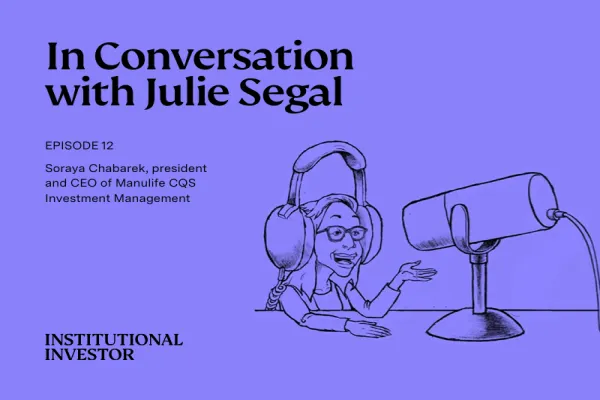Fifty years ago, an NYPD raid on the Stonewall Inn sparked a riot on the streets of Greenwich Village. That uprising triggered a global conversation around issues of gay rights. A determined and persistent movement toward equality and inclusion for all, including LGBTQ citizens, has gathered worldwide momentum ever since.
To mark the 50th anniversary of Stonewall and the progress made since, New York will act as host for WorldPride 2019 – think of it as world headquarters for Pride Month this June. The monthlong celebration of diversity will welcome millions of visitors to the city. A connection between Pride Month, WorldPride, and institutional investing may not seem an obvious one, but it’s an important one: research has shown that greater diversity in teams and businesses can lead to better informed investment decisions and strategies.
As Pride Month gets underway, the spirit of it is increasingly reflected in the demands of asset owners. Investors are the start of a path that diversity, inclusion, and equality now take through the investment process. According to Kathy Sayko, Chief Inclusion and Diversity Officer, PGIM, investor expectations have reached a granular level regarding diversity. It is not uncommon for RFP documents to spell out a preference for heterogeneity in investment management teams. Put plainly, “Investors today want to work with teams of investment professionals that are representative of inclusion and equality, and intellectual diversity, too,” says Sayko.
Taking pride in better decisions
Investments are, at their roots, decisions based on information that is processed in a particular way. Copious research demonstrates that the more diverse a group, the sounder its decisions. Among that body of research are scientific experiments conducted by Katherine W. Phillips, Katie Liljenquist, and Margaret A. Neale. Their research has demonstrated that diverse groups outperform more homogeneous groups because diversity triggers more careful information processing than homogeneous groups exhibit.
To people like Sayko of PGIM, that friction is akin to a rare mineral worth seeking in places far and wide. She speaks emphatically about “the phenomenal alpha in our diversity,” and warns against anodyne thinking that goes undisputed. That, to her, signifies a culture problem.
Sayko admits that it takes effort and persistence to reap the rewards of diversity and inclusion. However, just as the activists at Stonewall and their successors in the equality movement have learned, Sayko knows the push pays off.
“Varied experience and backgrounds lead to better outcomes,” she says. “There’s a challenge in holding to that belief. It’s harder to recruit and develop people of different backgrounds, and it’s harder to orchestrate the meetings where everyone isn’t nodding their head. But along with being harder, it turns out to be wonderful.”
Today more than ever
The culture of inclusion that imbues Pride Month is imperative to any world financial center, New York included. It cannot be overlooked that, not for the first time, global populism threatens to roll back hard-won rights. It must also not be overlooked that end investors wield tremendous power. Younger generations in particular, having come of age post-Stonewall and post-Selma, with the Women’s Movement in full voice, have an opportunity to weaken old orthodoxies. Their investments and votes (both as stockholders and in general elections) can uproot the poorly informed belief that leadership can be productively monopolized by any single faction of the population.
Global shifts in demographics make it clear that equality and inclusion, including financial inclusion, aren’t simply an upbeat recipe for more harmonious existence. Writ large, they’re vital in reducing the risk of global social upheaval and safeguarding the world economy. Look closer, however, and equality and inclusion are integral to achieving the best investment decisions and attracting the top talent to the investment profession.
Multiple touch points of diversity and inclusion
Inclusion, diversity, and equality are foundational to the future of the investment profession, as well. To recruit and retain top talent, a firm must be able to show a priority in its portfolios themselves toward improving the human condition. One way to portray this is in contrast to old-style “extractive” capitalism – large-scale investments have to benefit the people and places where they are made, or money thus invested in the future won’t grow.
The Stonewall milestone anniversary and Pride Month arrive at a time when institutions in general are forced to justify their contributions to all of humanity. Capitalism, the economic model governing all post-industrial life, has played a positive part in the march toward equality, and must continue to evolve and contribute to the greater good. So, too, must the investment world.
“Capitalism has its weaknesses,” said the lesbian and transgender author Camille Paglia, as though anticipating current commentary, “but it is capitalism that ended the stranglehold of the hereditary aristocracies, raised the standard of living for most of the world, and enabled the emancipation of women.” Stipulating to that point, institutions and asset management companies should logically pursue diversity and equality more ambitiously than ever, with reasonable expectations that doing so is good for business – and good for investors.
© 2019 Prudential Financial, Inc. (PFI) and its related entities. PGIM Inc., is the principal asset management business of PFI and is a registered investment advisor with the US Securities and Exchange Commission. PGIM is a trading name of PGIM, Inc and its global subsidiaries The PGIM logo and the Rock symbol are service marks of PFI and its related entities, registered in many jurisdictions worldwide.






